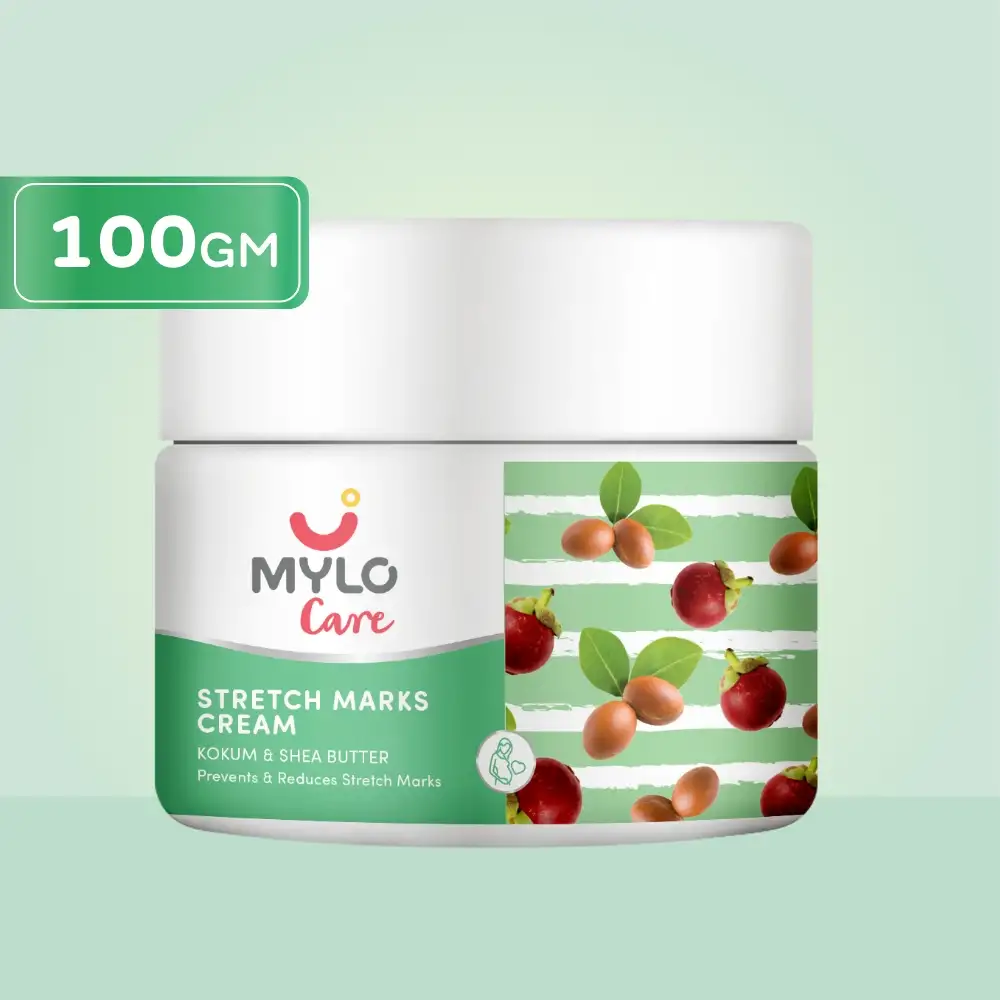
VIEW PRODUCTS
Article Continues below advertisement
- Home

- Nutrition Tips

- 4th Month Pregnancy Diet Chart: Your Guide to Maximizing Nutrient Intake
In this Article
Nutrition Tips
4th Month Pregnancy Diet Chart: Your Guide to Maximizing Nutrient Intake
Updated on 3 November 2023
Article Continues below advertisement
As you embark on the incredible journey of pregnancy, nurturing yourself and your growing baby with the right nutrition becomes paramount, especially during the pivotal 4th month. In this article, we present the ultimate guide to a well-balanced and nutrient-rich 4th-month pregnancy diet chart. Delve into the world of wholesome foods and smart choices that will not only support your well-being but also ensure your baby's healthy development.
Why Should You Follow a Pregnancy Diet Plan?
Before we delve into the specifics of a 4 month pregnancy food chart, let's explore the compelling reasons why a pregnancy food chart is essential:
1. Nourishing Your Baby
During pregnancy, your baby relies on you for all its nutrients. A well-structured diet ensures your baby receives the necessary building blocks for fetal growth and development.
2. Supporting Your Health
Proper nutrition helps you maintain your health, energy, and vitality throughout the pregnancy, which can reduce the risk of complications.
3. Managing Weight Gain
A diet plan can help you manage weight gain during pregnancy, ensuring it's within healthy limits.
Article continues below advertisment
4. Preventing Deficiencies
Specific nutrients, such as folic acid and iron, are crucial during pregnancy to prevent birth defects and anemia. A well-balanced diet can help meet these requirements.
5. Promoting Digestive Comfort
A pregnancy diet and meal plan can help alleviate common digestive issues, like heartburn and constipation.
10 Foods to Include in a Pregnancy Diet Chart
Here are the most beneficial and nutritious foods that you must include in your 4 month pregnancy diet and even throughout your pregnancy journey:
1. Leafy Greens
Packed with essential vitamins and minerals, leafy greens like spinach and kale provide the iron and folate needed for a healthy pregnancy.
2. Lean Protein
Incorporate sources like lean poultry, fish, and legumes to support your baby's growth and repair your tissues.
Article continues below advertisment
3. Whole Grains
Opt for whole grains like quinoa, brown rice, and whole-grain bread, which provide fiber and energy.
4. Dairy or Dairy Alternatives
These sources offer calcium and protein. If you're lactose intolerant, try fortified plant-based alternatives.
5. Fruits
Colorful fruits like oranges, berries, and bananas supply essential vitamins, antioxidants, and natural sweetness.
6. Nuts and Seeds
Packed with healthy fats and protein, nuts and seeds make for convenient, nutritious snacks.
7. Avocado
Rich in healthy fats, folate, and potassium, avocados support the development of your baby's brain and other vital organs.
Article continues below advertisment
8. Eggs
Eggs are a protein powerhouse and provide choline, a nutrient that aids in brain development.
9. Beans and Legumes
Excellent sources of protein, fiber, and folate, beans and legumes help with digestive regularity and fetal development.
10. Salmon
This fatty fish is abundant in omega-3 fatty acids, which are crucial for your baby's brain and eye development.
10 Foods to Avoid in a Pregnancy Food Chart
While we've discussed foods to include, it's equally vital to be aware of what to exclude from your pregnancy diet plan:
Article continues below advertisment
1. Raw Seafood
Avoid raw or undercooked fish and shellfish to prevent exposure to harmful bacteria.
2. Unpasteurized Dairy
Unpasteurized milk and dairy products can harbor harmful bacteria, so opt for pasteurized options.
3. High-Mercury Fish
Fish like shark, swordfish, and king mackerel contain high levels of mercury and should be avoided.
4. Caffeine
Limit your caffeine intake as excessive consumption has been linked to complications.
5. Alcohol
Alcohol should be completely avoided during pregnancy due to its potential to harm the developing baby.
Article continues below advertisment
6. High-Sugar Foods
Excess sugar can lead to gestational diabetes and unnecessary weight gain.
7. Unwashed Produce
Ensure you wash all fruits and vegetables thoroughly to eliminate harmful bacteria.
8. Soft Cheeses
Soft cheeses like Brie and Camembert can contain Listeria, which is harmful during pregnancy.
9. Processed Meats
Processed meats, such as deli meats and hot dogs, can carry the risk of Listeria contamination.
10. Excessive Vitamin A
High levels of vitamin A, found in some supplements and animal liver, can be harmful to the developing fetus.
Article continues below advertisment
4 Month Pregnancy Food Chart
Now, let's delve into your 4th-month pregnancy diet chart, ensuring that you get the right balance of nutrients to support you and your baby's health:
Monday
-
Breakfast– to keep a light and full breakfast, you can have some potatoes tossed in sesame seeds with whole wheat toast and a glass of fresh mango shake.
-
Snack – around noon, eat some fruits like grapes so that there is no long gap between meals.
-
Lunch - stick to your staple diet of moong dal, beans sabzi, onion paratha, and plain curd.
-
Snack – instead of drinking coffee or tea, go for lemonade and corn chaat with very light spices.
Article continues below advertisment
-
Dinner – to keep dinner light, eat vegetable khichdi, papad, and some mint raita.
Tuesday
-
Breakfast– start your day with besan ka chilla, dhaniya-pudina chutney, and chaas (buttermilk).
-
Snack – do not keep so much time between meals, have an apple instead.
-
Lunch- You can always go for soya curry, tori sabzi, and pomegranate raita with chapati/rice for lunch.
-
Snack– since you’ve already had fruit, have some poha (flattened rice) mixed with vegetables and coconut water.
Article continues below advertisment
-
Dinner– eat a healthy dinner of masoor dal (red lentils soup), tinda sabzi (round gourd), ragi roti, and carrot and radish salad.
Wednesday
-
Breakfast – you can bring a twist to your breakfast with daliya, which is broken wheat porridge. Add some nuts like walnuts and raisins to bring some texture. Drink some warm milk with it.
-
Snack– eat sapota or chikoo.
-
Lunch – You can eat spicy chickpeas with bhindi (okra) ki sabzi, kulcha, and curd.
-
Snack – add some nuts to your snacks such as walnuts and savor it with some aam panna.
Article continues below advertisment
-
Dinner – mushrooms and peas have a good amount of fiber and bitter gourd sabzi with chapati and rice.
Thursday
-
Breakfast – mix it up with some grilled paneer sandwich and orange juice.
-
Snack – for your fruit supplement, have watermelon as it is rich in antioxidants.
-
Lunch – since you need some proteins from lentils, you can make mixed dal with brinjal sabzi and cucumber raita.
-
Snack – jal jeera makes for a refreshing drink for the mind and the digestive system. Have some cucumber and carrots as well cut in batons.
Article continues below advertisment
-
Dinner – soya chunks make a great curry dish and combine them with chapati or rice and aloo methi (fenugreek) sabzi.
Friday
-
Breakfast – upma is an Indian breakfast delicacy that you can recreate with oats. Add beans and peanuts to increase their taste.
-
Snack – papaya is a good solution for sugar cravings and won't make you too full either.
-
Lunch – arhar daal is a staple, and you can pair it with beetroot sabzi and rice/chapati. Add some raita such as onion raita or cucumber raita.
-
Snack – Sattu is a great antioxidant. Drink sattu instead of any caffeine product.
-
Dinner - Have some lauki-kofta curry and beans sabzi with missi roti.
Saturday
-
Breakfast– you can make some rava idli with coconut chutney and pair it with some coffee. We have added coffee only once a week to keep a healthy ratio.
-
Snack– gobble on some bananas.
-
Lunch– paneer or cottage cheese is yet another great protein that you can pair with palak or spinach and make a palak paneer curry. Eat it with chapati and raita.
-
Snack – add some makhanas (foxnuts) to your diet for some strength, and drink them with warm almond milk.
-
Dinner – lobia is a black-eyed peas pulse that is very healthy for your baby. Pumpkin is also a great source of fibers and proteins. Pair the duo with some chapati; try avoiding rice at night.
Sunday
-
Breakfast– as a celebratory Sunday breakfast, have some methi paratha with lassi.
-
Snack – you can drink mosambi juice as a good source of antioxidants and vitamin C.
-
Lunch – rajma is a crowd favorite and a great taste-changer from the healthy week. Pair it with jeera rice and cauliflower & peas sabzi.
-
Snack– take as much as dry fruits as possible such as almonds, raisins, foxnuts, and walnuts, and freshen up with a glass of lemonade.
-
Dinner – dinners should be light, so have some moong dal, chapati/rice, and aloo and “hari pyaaz ki sabzi.”
This diet chart can also serve as your 2nd trimester pregnancy diet chart that you can follow in the fifth and sixth months of pregnancy.
You may also like: 10 Best Healthy & Refreshing Homemade Pregnancy Drinks
Tips for Your 4 Month Pregnancy Diet
Besides following a pregnancy diet plan, you should also be mindful of the following tips:
1. Stay Hydrated
Proper hydration is crucial. Aim for at least eight glasses of water a day to support the increased blood volume during pregnancy.
2. Practice Portion Control
While you're eating for two, it's essential to maintain portion control to avoid excessive weight gain.
3. Listen to Your Body
Pay attention to your body's cues. If you're hungry, eat, but avoid overindulging.
4. Seek Professional Guidance
Consult with your healthcare provider or a registered dietitian to ensure you're meeting your specific dietary needs.
5. Stay Active
Incorporate safe and approved exercises into your routine, as this can aid digestion and overall well-being.
Final Thoughts
The 4th month of pregnancy is a time of significant growth and development for your baby, and a well-structured pregnancy diet chart plays a pivotal role in ensuring a healthy outcome. By including the right foods, avoiding potential risks, and following valuable tips, you can confidently navigate this crucial phase while maximizing nutrient intake for both you and your baby. Remember, a well-nourished mom is the cornerstone of a thriving pregnancy journey.
References
1. Pretorius RA, Palmer DJ. (2020). High-Fiber Diet during Pregnancy Characterized by More Fruit and Vegetable Consumption. NCBI
2. ACOG. Nutrition During Pregnancy: Frequently Asked Questions.
Tags
4th Month Pregnancy Diet Chart in Bengali, 4th Month Pregnancy Diet Chart in Telugu, 4th Month Pregnancy Diet Chart in Tamil



Written by
Anupama Chadha
Anupama Chadha, born and raised in Delhi is a content writer who has written extensively for industries such as HR, Healthcare, Finance, Retail and Tech.
Read MoreGet baby's diet chart, and growth tips

Related Articles
Related Topics
Products you may like
RECENTLY PUBLISHED ARTICLES
our most recent articles

Diet & Nutrition
গর্ভাবস্থায় আলুবোখরা: উপকারিতা ও ঝুঁকি | Prunes During Pregnancy: Benefits & Risks in Bengali

Diet & Nutrition
গর্ভাবস্থায় হিং | ঝুঁকি, সুবিধা এবং অন্যান্য চিকিৎসা | Hing During Pregnancy | Risks, Benefits & Other Treatments in Bengali

Women Specific Issues
স্তনের উপর সাদা দাগ: লক্ষণ, কারণ এবং চিকিৎসা | White Spots on Nipple: Causes, Symptoms, and Treatments in Bengali

Diet & Nutrition
গর্ভাবস্থায় পোহা: উপকারিতা, ধরণ এবং রেসিপি | Poha During Pregnancy: Benefits, Types & Recipes in Bengali

Diet & Nutrition
গর্ভাবস্থায় মাছ: উপকারিতা এবং ঝুঁকি | Fish In Pregnancy: Benefits and Risks in Bengali

Diet & Nutrition
গর্ভাবস্থায় রেড ওয়াইন: পার্শ্ব প্রতিক্রিয়া এবং নির্দেশিকা | Red Wine During Pregnancy: Side Effects & Guidelines in Bengali
- ইনার থাই চ্যাফিং: কারণ, উপসর্গ এবং চিকিৎসা | Inner Thigh Chafing: Causes, Symptoms & Treatment in Bengali
- গর্ভাবস্থায় ব্রাউন রাইস: উপকারিতা ও সতর্কতা | Brown Rice During Pregnancy: Benefits & Precautions in Bengali
- Velamentous Cord Insertion - Precautions, Results & Safety
- Unlock the Secret to Flawless Skin: 7 Must-Have Qualities in a Face Serum
- Unlock the Secret to Radiant Skin: How Vitamin C Serum Can Transform Your Complexion
- Gender No Bar: 10 Reasons Why Everyone Needs a Body Lotion
- Unlock the Secret to Radiant Skin How to Choose the Perfect Body Lotion for Your Skin Type
- Top 10 Reasons to Apply a Body Lotion After Every Bath
- Communication in Toddlers: Milestones & Activities
- How to Improve Vocabulary for Toddlers?
- A Comprehensive Guide to Understanding Placenta Accreta
- Vulvovaginitis in Toddlers Causes, Symptoms and Treatment
- A Comprehensive Guide to Understanding Cerebral Palsy in Children
- Bitter Taste in Mouth During Pregnancy: Understanding the Causes and Remedies

At Mylo, we help young parents raise happy and healthy families with our innovative new-age solutions:
- Mylo Care: Effective and science-backed personal care and wellness solutions for a joyful you.
- Mylo Baby: Science-backed, gentle and effective personal care & hygiene range for your little one.
- Mylo Community: Trusted and empathetic community of 10mn+ parents and experts.
Product Categories
baby carrier | baby soap | baby wipes | stretch marks cream | baby cream | baby shampoo | baby massage oil | baby hair oil | stretch marks oil | baby body wash | baby powder | baby lotion |







